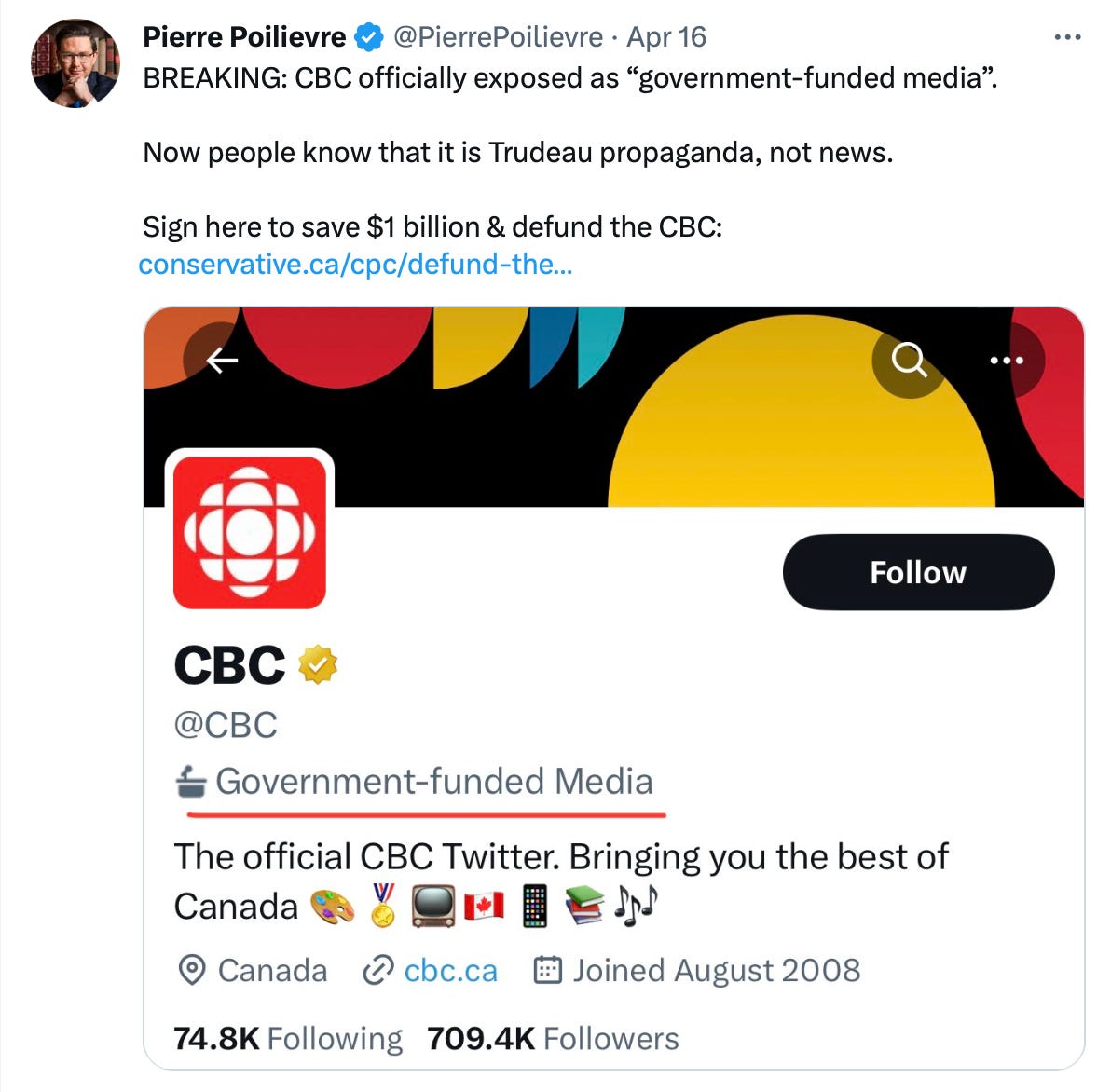Political Hell #5: Why is it like this?
Where power really lies in Canada's political discourse
Here are three things that happened in the last week on the Canadian political scene:
1. On Sunday, Conservative leader Pierre Poilievre tweeted gleefully that Twitter had finally “exposed” the CBC as “government-funded media,” a label the social media site is now applying, without much logic, to media organizations like the BBC and NPR (only one of which actually receives direct public funding). “Now people know that it is Trudeau propaganda, not news,” Poilievre wrote in his tweet. The CBC responded by saying it will be “pausing” its activities on Twitter. For Poilievre and his supporters, the Twitter designation counts as a huge win. For months, Poilievre and the Conservative Party have thirstily tweeted at Twitter’s CEO, Elon Musk, begging for the billionaire’s gaze to turn his way – and, in so doing, the attention of his massive techno-bro troll army. They finally got what they wanted.
2. Last Thursday, during a stop at the University of Manitoba, Prime Minister Justin Trudeau was accosted by a young man, smartphone camera raised and a debate, of sorts, ensued. We know this because someone else posted their own video of the interaction, in which the young man – a self-declared PPC supporter – suggested that women should be denied access to abortion. In fact, the young man went further, saying that not “if they’re sleeping around, they shouldn’t be allowed to abort the baby.” Trudeau replied: “Wow.” And – yeah, no kidding. Anyway, the video of the video quickly made the rounds amongst leftist/progressive/liberal spheres and went viral.
3. On Friday, Trudeau’s chief of staff, Katie Telford (who, naturally, shared the viral video of her boss’s conversation at the UofM), appeared at a parliamentary committee to face questions about when she and Trudeau knew about allegations of Chinese interference in the 2019 and 2021 elections. The opposition MPs peppered Telford with questions for hours, but to little use. Reviewing the committee meeting, Campbell Clark at the Globe and Mail noted that the opposition MPs “were just bad at asking questions.”
The link between the three is online, and exploring that connection reveals something critical about what we’ve done to Canadian political discourse, where it comes from, and why it sounds like this.




